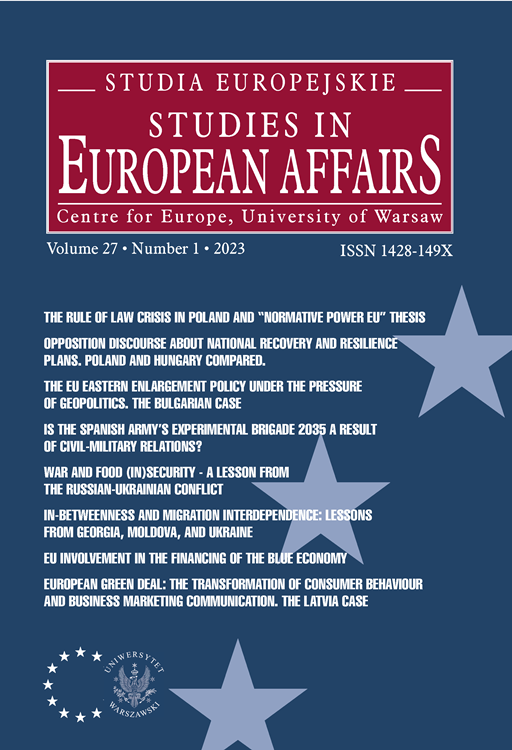European Green Deal: The Transformation of Consumer Behaviour and Business Marketing Communication as Opportunities to Increase Consumer Involvement in the Sorting of Waste in Latvia
European Green Deal: The Transformation of Consumer Behaviour and Business Marketing Communication as Opportunities to Increase Consumer Involvement in the Sorting of Waste in Latvia
Author(s): Kristine Blumfelde-RutkaSubject(s): Politics / Political Sciences, Social Sciences, Economy, National Economy, Supranational / Global Economy, EU-Approach / EU-Accession / EU-Development, EU-Legislation
Published by: Centrum Europejskie Uniwersytetu Warszawskiego
Keywords: Climate Change; Latvia; Consumer Behaviour; Waste Sorting; Marketing Communication
Summary/Abstract: The European Green Deal is the European Union’s latest expression of its ambition to become a world leader in addressing climate change (Kleinberga, 2020). Adaptation to climate change (CCh) is a key priority of the European Union (EU), exemplified by the EU’s efforts to become“ the first climate-neutral continent” (European Union, 2019) in the world by 2050. This article aims to analyse opportunities to increase consumer involvement in the context of waste sorting and climate change in Latvia, based on theoretical knowledge about consumer behaviour and empirical data analysis, to develop recommendations for marketing communication and consumer behaviour in the context of climate change content for waste management companies. There is a necessity to understand how to increase consumer involvement in waste-sorting due to the increasing amount of waste both in Latvia and the rest of the world. The following research methods have been used: the monographic method, secondary data analysis, the discourse analysis/coding method, the graphical method, and the qualitative method – a focus group interview. The most significant barriers that discourage consumers from sorting waste are the lack of infrastructure, the lack of information on how to sort waste properly and waste’s environmental impact, as well as the complex system that allows for differences in waste-sorting between municipalities and even neighbourhoods in the same city. Recommendations were developed as a result of the research for waste management companies in terms of communication, NGOs on education, and information for consumers, businesses, and waste management companies.
Journal: Studia Europejskie
- Issue Year: 27/2023
- Issue No: 1
- Page Range: 163-176
- Page Count: 14
- Language: English

